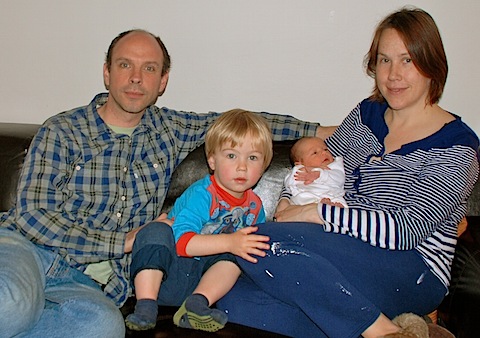Care of Netflix’s Watch Instantly service, I just finished Exit Through the Gift Shop (Netflix, IMDB),a fun, and strange, documentary on street art, psychosis, the idiocy of the art world, and Banksy. The focus of the documentary is Thierry Guetta, a Frenchman living in Los Angeles with his wife and children. He’s something of a videomaniac, continuously recording his life. Through a familial connection, he uncovers the world of street art, which then becomes his obsession, first to document, and then to produce. He crosses paths with Shepard Fairey (of OBEY/GIANT and the Obama Hope poster fame), and, most notably Banksy, perhaps the most notorious street artist in the world.
The film tells the tale of how, at Banksy’s urging, Guetta stopped filming the world of street art, and started making some of his own. Under the moniker Mr BrainWash, he briefly engages in the kind of paste-ups and stenciling the Fairey and Banksy have made famous, but then quickly decides to have his own giant warehouse show. The lark being, his warehouse show, typically the kind of thing that comes after an artist works for years, if not decades, but for him happens after just months, is an overwhelming success.
More then anything, the film is fun. Street art is a great subject, what with all the surreptitious evening shoots and people going where they shouldn’t, doing things they shouldn’t be doing. Guetta is a great subject — outrageous French accent, seemingly crazy, but also with a strange ability to get others to rally in his support and pull off this monstrous show. I actually found that part endearing, because it spoke to a kind of karma — Guetta had given much of himself, his time, and his resources to help other street artists, and they ended up supporting him, too.
A conceit of the film is that it was originally going to be a film by Guetta about street art, but then became a film by Banksy about Guetta. This is important because a one of the film’s main themes is that, well, the art world is a load of bollocks. It starts small, with video of Banksy infiltrating the Tate with his art, then the ascendant rise of street art as a subject of auctions, culminating in Mr Brainwash’s surprisingly popular show, given he had no real art bona fides.
This has lead some to think the whole point of the film is for Banksy to flash a big “up yours” to the art world.
Some have even gone so far as to say the entire Guetta/Mr Brainwash story is a hoax or prank, perpetrated by Bansky and Fairey, to prove their point. A stance I find appalling, because, really, there is no evidence whatsoever of a prank. However, there’s a sad class of smart-erati who live in fear of being duped, and in order to demonstrate their smartness, level accusations such as “prank” or “hoax” on such things. Regardless of whether there is evidence. Really, this kind of thinking is no different than conspiracy theorists, piecing together a set of insubstantial “evidence” as a demonstration of a diabolical master plan.
Anyway, if you’re looking for a fun, quirky, pointed diversion, Exit Through the Gift Shop is definitely worth a look.
